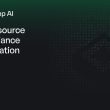IMF researchers hinted at the possibility of using a user’s browsing history, including search and purchasing data, for more accurately determining the person or business’ credit rating.
In its recent blog post, four researchers from the International Monetary Fund (IMF), the global lender to nations during financial crunches, revealed their findings regarding the undeniable correlation between finance and tech (fintech) and its potential future.
IMF researchers have highlighted the reason behind fintech’s success and public acceptance over the past ten years against physical banks.
In the working paper, IMF researchers hinted at the possibility of using a user’s web history, including search, browsing, and purchasing data, for more accurately determining the person or business’ credit rating.
See: Malware infected browser extensions stealing Chrome, Edge user data
Researchers Arnoud Boot, Peter Hoffmann, Luc Laeven, and Lev Ratnovski believe that this method can lead to greater lending to those borrowers who might be denied loans by conventional financial institutions.
The paper’s bottom line is that tech firms like Apple, Google, and Facebook threaten the traditional institutional banking system.
Researchers claim that physical banking is receding because tech firms like Facebook have greater access to soft-information.
Conversely, messaging platforms are likely to replace physical locations, while banks rely on customer meetings.
“Communication innovation is driven by the variety of digital platforms in social media, mobile communication, and online shopping that have penetrated much of consumers’ everyday lives, thus increasing their digital footprint and the available data,” researchers said in a blog post.
The idea of using online web history to determine credit score is based on the notion that lenders usually consult hard-data, which may not reflect a borrower’s worthiness as accurately, and could possibly paint a dire picture, especially during times of a financial crisis.
Therefore, soft-data points such as the type of hardware or browser used to access the internet, and online searches or purchase history can closely evaluate a borrower.
“Once powered by artificial intelligence and machine learning, these alternative data sources are often superior to traditional credit assessment methods, and can advance financial inclusion, by, for example, enabling more credit to informal workers and households and firms in rural areas.”
This method can be more powerful than traditional credit risk assessments that banks carry out. IMF reports that there are around 1.7 billion unbanked adults worldwide, so this method can help those who get ignored by banks, such as informal workers.
See: Hackers found tracking web traffic of Chrome and Firefox browsers
The data would be incorporated into credit ratings through machine learning. This may cause policy and privacy concerns, but the researchers didn’t explain in detail how they intend to put this idea into practice.
Whatever happened to privacy?
Did you enjoy reading this article? Don’t forget to like our page on Facebook and follow us on Twitter!








